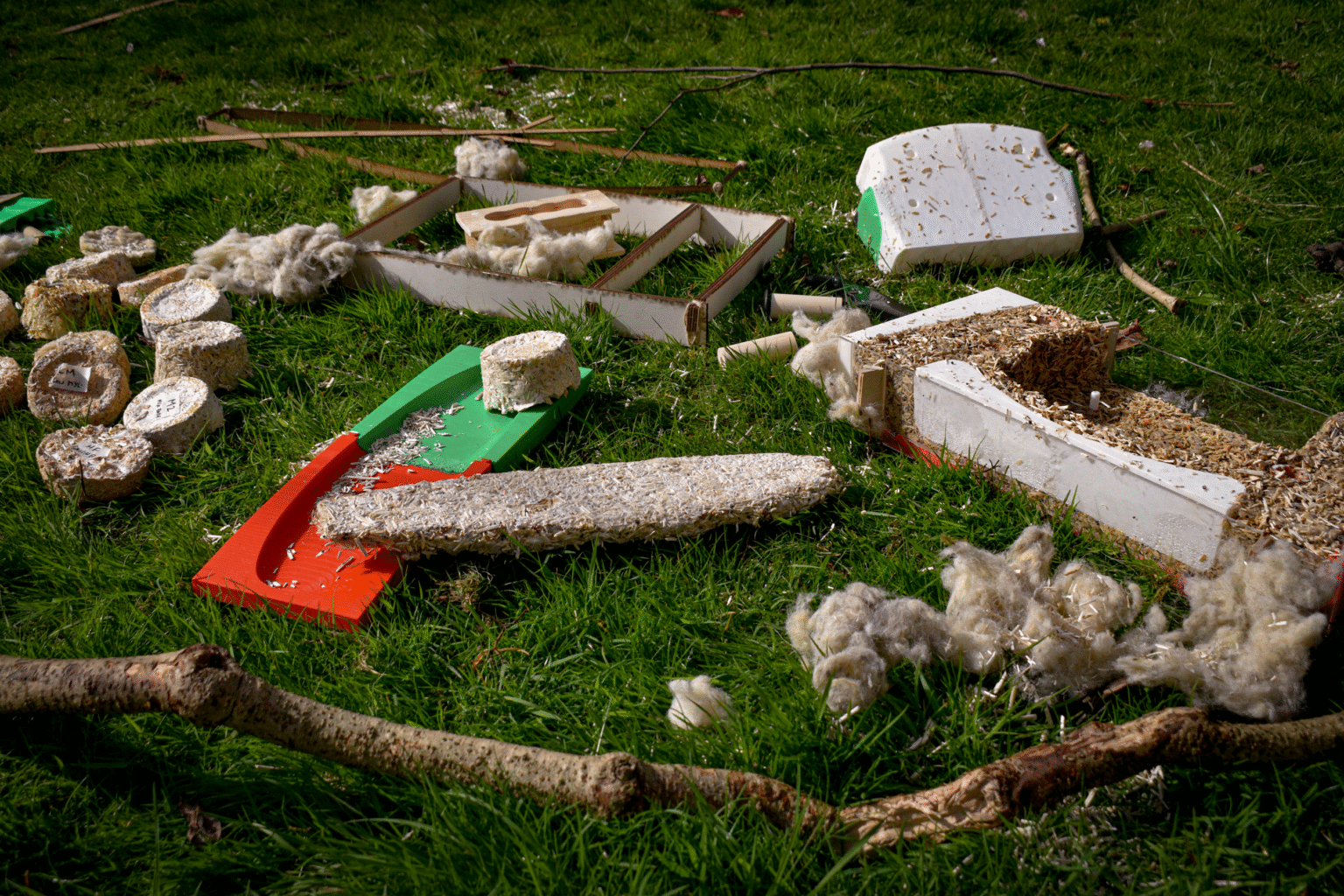Product Design Engineering School of Design
Jake Lee

Connection to nature is ingrained within the culture of surfing, however the boards that define the sport are constructed from petrochemicals and volatile organic compounds that remain in our ecosystem for centuries. Whilst advanced boards are often repaired and cared for, the beginner ‘foamie’ surfboards used within surf schools average just a 6 month life cycle.
To combat this, grown boards take naturally sourced, regenerative, byproduct materials and bind them together using the growth process of fungal mycelium root networks. This mycelial growth process allows the boards to incorporate tensioned timber reinforcements, corrugated textured decking and density reducing air pockets to achieve the same performance as traditional boards whilst keeping a low carbon, positive end of life material profile. Crucially, this process has been designed alongside industry leaders for mass manufacture, making it a cheap and viable mass market alternative to petrochemical foam boards.
The result is grown: the very first all-natural, lightweight, mycelium-based beginner surfboard.
Contact


grown board manufacturing cycle

grown mycelium prototyping

